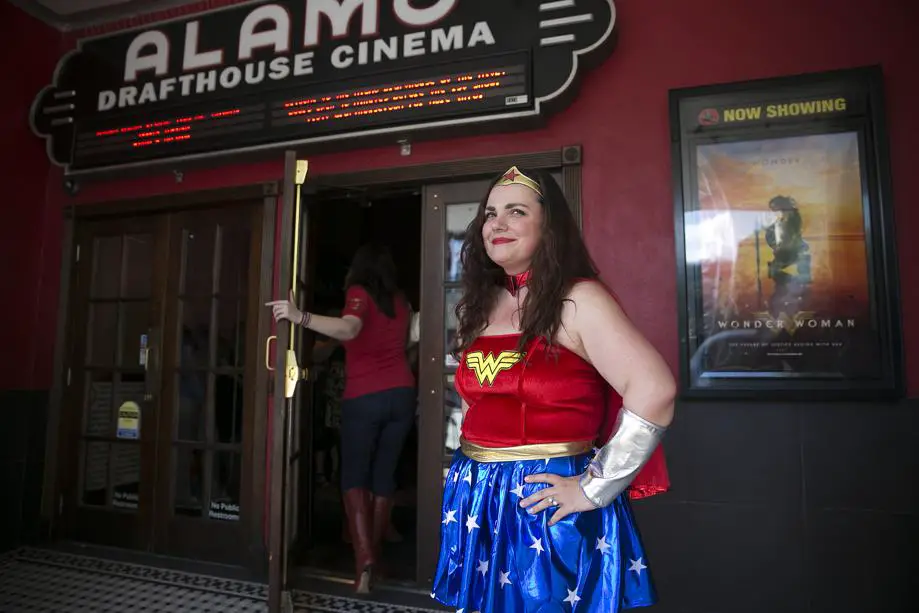Wonder Woman’s Off-screen Battle
For many critics, the restricted showing is probably their first encounter with gendered discrimination.
By Abbey Slattery, Northwestern College
This past week, “Wonder Woman” hit the big screen.
The first DC movie directed by a woman and starring one as well, the film opened to over $100.5 million domestically, making it the largest premiere for a female director ever. With an opening like that, you would think that the film would have overwhelming support—and it does—but after the announcement of an all-female showing, the movie has met opposition from many outraged viewers.
In the years since Wonder Woman’s creation, in 1941, she has been plagued with gender-biased trials. Written into existence by Dr. William Marston, an internationally famous psychologist with an apparent gig moonlighting for DC Comics (for those interested, a brief digression into the interesting man that Marston was), Wonder Woman was originally intended to be psychological propaganda, representing a strong woman able to support and save herself. Though some dispute surrounded her largely immodest depiction and the frequent occurrences of bondage, Wonder Woman quickly become an icon for young girls and women everywhere.
But a new outrage arose this past weekend surrounding the lassoing hero. For a little background, Wonder Woman comes from Themyscria—originally and perhaps tongue-in-cheekingly referred to as Paradise Island—a land where women rule, and no men are allowed. Some critics argue that this homeland, coupled with the independence and strength of the character, shows Marston’s support of the matriarchy and even the belief that women are greater than men. Seventy years later, Wonder Woman faces the same controversy after the Alamo Drafthouse Theater declared a night for an all-female showing.

In celebration of the iconic hero getting her own film, the folks at the drafthouse announced a one-time, all-female special screening of the movie. Everyone, from the patrons to the staff and the projectionists, were women. For some people, this announcement led to indignation. If you peruse the Facebook post announcing the event, you’ll find most of the top comments include responses from men, asking why all-male screenings of movies don’t occur and saying that there exists a double standard for these events. If an all-male screening of a movie occurred, there would be outrage, but women get away with it because it’s “empowering.” Or so they say.
Alamo Drafthouse was understandably apologetic to all of these commenters, but my question is: Should they be? Wonder Woman stands as a character that has shaped young girls for generations. She was the first of her kind, the first female to enter the male-dominated world of superheroes, and she was a beacon of representation for women during a time when domesticity was the norm. She was created on the heels of World War II, the aftermath of which saw a call for women to leave the jobs they filled in at the factories and return to the homes, a climate which eventually led to “The Feminine Mystique” -inspired second-wave feminist movement. In a time when women were called to the homes, and many—though not all—discovered some unrest in their domestic lifestyles, characters like Wonder Woman were blazing signs of empowerment, representing a different type of future for females.
And yes, it is important for all genders to see the movie, because men seeing strong women onscreen is vital as well. But what the Alamo Drafthouse did was not discriminating against one gender. They didn’t maliciously say, “No man can ever see this movie!” Because, number one, that would be awful for PR, and number two, they only set aside two special nights for this event. They didn’t blockade men from ever seeing it, they just intentionally made it a point to welcome women into the theater, to celebrate seeing a woman, directed by a woman, playing a strong woman onscreen.
In a country dominated by men in both popular culture and media, I don’t think it is at all a crime to celebrate and encourage the viewing and representation of women in mass media. I, for one, am glad that so many little girls get to grow up in a world where women can be seen on the big screen as Jedi, Ghostbusters and Amazonian superheroes right next to all the men, hanging in shot for shot.

On that note, as far as representation goes, women suffer from a clear deficit in films. For those interested, here is a handy chart from the New York Film Academy that details the representation of women in Hollywood over the past few years. Though women account for half of the ticket sales, they only have 32 percent of the speaking roles. Not even necessarily lead roles. Just roles where they literally get to speak.
In 2016, women did see an increase in the number of protagonist roles, thanks to films like “Rogue One,” “Hidden Figures” and “Arrival,” but the majority of those roles were not action movies, and certainly not superhero ones. So, when a film like “Wonder Woman” comes along, women especially should rush to embrace seeing strong women kicking butt, taking names and saving the world, because not many women onscreen get the chance to.
Complaining about an all-female showing of “Wonder Woman” can’t be the most productive thing to do. Just ask yourself: At the core of this event, who is it hurting? Even if you’re a man who wants to see this movie, why is it so bad to let women enjoy this movie—led by a character who you don’t even have to consider a feminist, just a woman in a leading superhero role—surrounded by other women? How does it personally hurt you? If you want to compare representation and discrimination, maybe instead of posting a Facebook comment, do a little bit of research. Figure out for yourself if maybe, for some reason, women might have a little bit of a reason for a showing like this. And if men want to see an all-male showing of a movie like “Fight Club” or “The Godfather,” I really don’t think most women would have a problem with it.
Now, I am not advocating for a real-life Themscyria, where women ban men and create their own utopia, because men and women are equals, and that balance is necessary. But for a gender that so often doesn’t see themselves in empowering roles onscreen, just let this one slide without all the uproar.

















